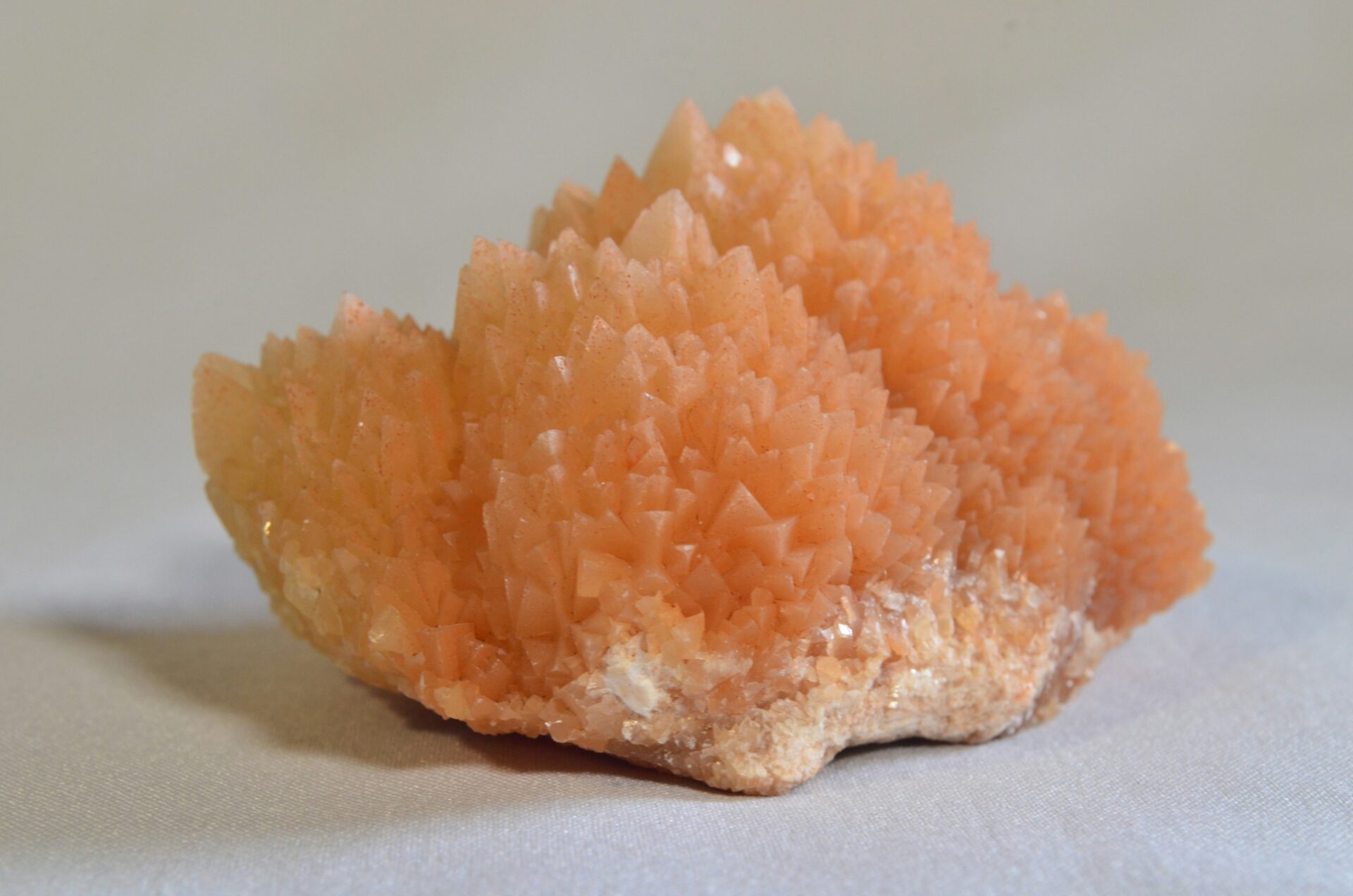As a parent, ensuring your little one’s healthy growth and development is a top priority. One essential nutrient that plays a crucial role in bone development is calcium. But how can you ensure calcium-rich foods for babies or toddlers? Don’t worry, we’ve got you covered. In this article, we’ll explore a variety of delicious and nutritious options that will help your little one grow strong and steady, providing them with the necessary calcium to support their growing bones. So let’s dive in and discover some fantastic calcium-rich foods that will leave your little one healthy and happy.

This image is property of images.unsplash.com.
Why is calcium important for babies and toddlers?
The role of calcium in growth and development
Calcium plays a crucial role in the growth and development of babies and toddlers. It is an essential nutrient that is responsible for the formation and maintenance of strong bones and teeth. Calcium is also important for proper muscle function, nerve signaling, and blood clotting. In addition, calcium is necessary for the absorption of other important nutrients, such as vitamin D, which further supports healthy bone development.
Calcium requirements for infants and toddlers
Babies and toddlers have specific calcium requirements to support their rapid growth and development. The American Academy of Pediatrics recommends that infants aged 0-6 months receive a daily intake of 200 mg of calcium, while those who are 7-12 months old should aim for 260 mg per day. For toddlers aged 1-3 years, the recommended daily calcium intake increases to 700 mg. It is important to ensure that your baby or toddler is consuming enough calcium through a balanced and varied diet.
Consequences of calcium deficiency
A deficiency in calcium during infancy and early childhood can have significant consequences on a child’s health and development. Insufficient calcium intake can lead to poor bone mineralization, which increases the risk of fractures and bone injuries. Calcium deficiency can also negatively impact tooth development, leading to weaker teeth and an increased susceptibility to dental cavities. In addition, inadequate calcium intake can affect muscle function and may contribute to delayed growth and development. Ensuring a good calcium intake is crucial for the overall health and well-being of babies and toddlers.
Best sources for calcium-rich foods for babies and toddlers
Dairy products
Dairy products, such as milk, yogurt, and cheese, are some of the best sources of calcium for babies and toddlers. Whole milk can be introduced to babies after their first birthday, and it is an excellent source of calcium. Yogurt and cheese are also great options and can be introduced earlier, as they are more easily digestible for babies. Choose plain, unsweetened varieties to avoid added sugars and unnecessary additives.
Breast milk and formula
Breast milk and formula are important sources of calcium for infants. Breast milk naturally contains calcium and provides optimal nutrition for babies. If you are unable to breastfeed or choose to use formula, make sure to select an iron-fortified formula that contains the necessary calcium for your baby’s growth and development.
Leafy green vegetables
Leafy green vegetables, such as kale, spinach, and broccoli, are excellent sources of calcium for babies and toddlers. These vegetables not only provide calcium but also offer additional vitamins, minerals, and antioxidants. Incorporate these vegetables into your baby’s purees, soups, or as finger foods as they transition to solid foods.
Fortified foods
Many foods are fortified with calcium to ensure adequate intake, especially for those with dietary restrictions or allergies. Fortified cereals, bread, and oatmeal can be good sources of calcium if they are included in your baby’s diet. Check the labels carefully to ensure that the products are fortified with calcium and other important nutrients.
Fish with edible bones
Certain types of fish, such as canned salmon or sardines, contain edible bones that are rich in calcium. These bones can be easily mashed or pureed for younger babies, and they provide an additional source of calcium. Just make sure to check for any small bones and remove them before serving.
Legumes and nuts
Legumes, such as chickpeas and lentils, and nuts, such as almonds and sesame seeds, are good sources of plant-based calcium. These can be incorporated into your baby’s diet through purees, stews, or as toppings for yogurt or cereals. However, be cautious with whole nuts, as they can be a choking hazard for young children. Always offer them in a ground or pureed form.
Calcium-rich recipes for babies
Homemade yogurt with fruit puree
One simple way to incorporate calcium-rich foods into your baby’s diet is by making homemade yogurt with fruit puree. Blend plain, unsweetened yogurt with your baby’s favorite fruits, such as banana or berries, to create a delicious and nutritious snack or meal. Yogurt is not only high in calcium but also provides probiotics that support a healthy digestive system.
Broccoli and cheese puree
Broccoli is a nutrient powerhouse, packed with calcium, vitamin C, and fiber. Steam or boil broccoli until soft, then puree it with a small amount of grated cheese for added calcium and flavor. This puree can be served as a side dish or mixed with other vegetables or protein sources to create a complete meal for your baby or toddler.
Cauliflower mac and cheese
Cauliflower is another vegetable that is high in calcium and can be incorporated into your baby’s diet in a delicious way. Steam or roast cauliflower florets until tender, then blend them with cooked pasta and a cheese sauce made from a calcium-rich cheese, such as cheddar or mozzarella. This dish provides a good balance of calcium and carbohydrates, making it a satisfying meal for your little one.
Spinach and salmon rice
Spinach and salmon are both excellent sources of calcium and other important nutrients. Cook spinach until wilted, then blend it with cooked salmon and mix it into cooked rice. This dish is a great way to introduce fish and leafy greens to your baby’s diet while providing a good amount of calcium and protein.
Further recipes: https://www.happiestbaby.com/blogs/baby/calcium-foods
Introducing calcium-rich foods for babies and toddlers
Timing of introduction
When introducing calcium-rich foods to your baby, it is important to consider their developmental readiness. Most babies are ready to start solid foods around 6 months of age, but it is always best to consult with your pediatrician for personalized guidance. As your baby grows, you can gradually introduce a variety of calcium-rich foods to their diet.
Start with small portions
When introducing new foods to your baby, start with small portions. Offer a few spoonfuls and observe their reaction. This allows you to assess any potential allergies or digestive issues. As they become familiar with the taste and texture, you can gradually increase the portion size and frequency of these calcium-rich foods.
Variety is key
To ensure a well-rounded diet and maximize calcium intake, it is important to offer a variety of calcium-rich foods. This includes incorporating different types of milk, dairy products, vegetables, and other calcium sources. By providing a diverse range of foods, you can expose your baby to different flavors and nutrients, promoting healthy eating habits from an early age.
Texture and food consistency
As babies transition from purees to more textured foods, it is important to gradually introduce a variety of textures and food consistencies. Offer soft and mashed foods first, then gradually increase the level of texture as your baby becomes more comfortable chewing and swallowing. This helps develop their oral motor skills and encourages them to explore different types of calcium-rich foods.
Offering calcium-fortified snacks
In addition to meals, offering calcium-fortified snacks can help meet your baby’s daily calcium requirements. Look for snacks such as calcium-fortified crackers, cereal bars, or fruit pouches. These can be convenient options for on-the-go or as a quick snack between meals.

This image is property of images.unsplash.com.
Tips to increase calcium absorption
Pair calcium-rich foods with vitamin D
Vitamin D plays a crucial role in calcium absorption and utilization. To enhance calcium absorption, it is important to pair calcium-rich foods with vitamin D sources. Expose your baby to natural sunlight for a few minutes each day, as sunlight triggers the production of vitamin D in the skin. Additionally, incorporate vitamin D-rich foods such as fatty fish, fortified dairy products, and eggs into your baby’s diet.
Avoid excessive salt consumption
Excessive sodium intake can interfere with calcium absorption and increase the risk of calcium loss from the body. It is important to limit your baby’s sodium intake by avoiding processed and packaged foods that are high in salt. Instead, focus on preparing homemade meals using fresh ingredients and herbs to flavor the food without relying on salt.
Include magnesium-rich foods
Magnesium is another important nutrient that supports calcium absorption and utilization in the body. Include magnesium-rich foods, such as whole grains, nuts, seeds, and leafy green vegetables, in your baby’s diet. These foods not only provide essential nutrients but also help optimize calcium absorption for better bone health.
Limit caffeine intake
Caffeine can interfere with calcium absorption and increase calcium loss through urine. While it is not recommended for babies and toddlers to consume caffeinated beverages, it is important to be mindful of foods or medications that may contain caffeine. Limit your baby’s exposure to caffeine-containing substances to avoid any potential negative effects on calcium absorption.
Maintain a balanced diet
A balanced diet is key to ensuring optimal calcium absorption and utilization. Make sure your baby’s diet includes a variety of nutrient-rich foods from different food groups, including fruits, vegetables, whole grains, lean proteins, and dairy products. By providing a well-rounded diet, you can support your baby’s overall health and maximize their calcium intake.
Calcium supplements for babies and toddlers
When are supplements necessary?
In general, most babies and toddlers can meet their calcium needs through a balanced and varied diet. However, in certain situations, calcium supplements may be necessary. If your baby has specific dietary restrictions or allergies that limit their calcium intake, or if they have a medical condition that affects calcium absorption, your pediatrician may recommend calcium supplements. It is important to consult with a healthcare professional before introducing any dietary supplements to your baby or toddler.
Types of calcium supplements
If your child requires a calcium supplement, there are different types available, such as calcium carbonate and calcium citrate. Calcium carbonate is commonly found in over-the-counter supplements and is well-absorbed when taken with food. Calcium citrate, on the other hand, is usually recommended for those with low stomach acid or who are taking certain medications that affect calcium absorption. It is important to follow your pediatrician’s guidance and dosage instructions when giving your baby or toddler a calcium supplement.
Consulting a pediatrician
Before starting your baby or toddler on any calcium supplements, it is crucial to consult with a pediatrician or healthcare professional. They can assess your child’s specific needs and determine if supplements are necessary. A healthcare professional can provide guidance on the appropriate dosage and help monitor your child’s calcium levels to ensure optimal growth and development.

This image is property of images.unsplash.com.
Common concerns and misconceptions about calcium
Milk allergy and alternatives
While cow’s milk is a common source of calcium, some babies and toddlers may have a milk allergy or intolerance. If your child is allergic to milk, there are alternative calcium sources available. Calcium-fortified plant-based milks, such as almond milk or soy milk, can be suitable alternatives. However, it is important to consult with a pediatrician or allergist to ensure that these alternatives are appropriate for your child’s needs.
Lactose intolerance and lactose-free options
Lactose intolerance is another common concern when it comes to dairy consumption. Lactose is the natural sugar found in milk and dairy products, and some individuals lack the enzyme needed to digest it properly. If your child is lactose intolerant, there are lactose-free dairy options available, such as lactose-free milk or yogurt. These alternatives provide the same amount of calcium without the lactose. Again, consult with a healthcare professional for personalized advice.
Calcium absorption from plant-based sources
Plant-based sources of calcium, such as leafy green vegetables and legumes, can be excellent options for babies and toddlers. While the calcium content in these foods may be lower compared to dairy products, they are still valuable sources of this essential nutrient. It is important to note that the absorption of calcium from plant-based sources may be affected by the presence of certain compounds, such as oxalates and phytates. However, by pairing these foods with vitamin C-rich sources, such as citrus fruits or bell peppers, you can enhance calcium absorption.
Do babies and toddlers need cow’s milk?
The consumption of cow’s milk is not necessary for babies and toddlers to meet their calcium needs. While cow’s milk is a good source of calcium, it is not the only option available. A well-balanced diet that includes a variety of calcium-rich foods can provide all the necessary nutrients for optimal growth and development. In certain cases, infants may need to delay the introduction of cow’s milk until their first birthday, as it can be harder to digest for their developing digestive systems.
Impact of calcium on iron absorption
Calcium has been shown to hinder the absorption of iron from plant-based sources. However, this effect is minimal when calcium is consumed in normal amounts as part of a balanced diet. It is important to continue offering iron-rich foods to your baby or toddler alongside calcium-rich foods. By combining these two nutrients in balanced amounts, you can support both calcium absorption and iron utilization in the body.
Signs of calcium deficiency in babies and toddlers
Delayed growth and development
With calcium playing a crucial role in growth and development, a deficiency can lead to delayed growth milestones in babies and toddlers. If your child is consistently falling behind in terms of height, weight, or achieving developmental milestones, it may be worth considering their calcium intake and discussing any concerns with a healthcare professional.
Poor bone and teeth health
Calcium is essential for the formation and maintenance of strong bones and teeth. A deficiency in calcium can lead to weakened bones and teeth, increasing the risk of fractures and dental problems. If your child experiences frequent dental cavities, weak teeth, or breaks bones easily, it may be an indication of inadequate calcium intake.
Muscle cramps and spasms
Calcium is important for proper muscle function, and a deficiency can result in muscle cramps and spasms. If your baby or toddler frequently complains of muscle pain, experiences muscle stiffness, or exhibits muscle twitching, it may be worth exploring their calcium status.
Fatigue and irritability
Inadequate calcium intake can also contribute to feelings of fatigue and irritability in babies and toddlers. If your child seems consistently tired, lacks energy, or is unusually irritable, it is worth considering their calcium intake as a potential factor.
Frequent fractures or bone injuries
Children with a calcium deficiency are more prone to fractures and bone injuries due to weakened bones. If your child seems to break bones easily or has a history of frequent fractures, it is important to evaluate their calcium intake and ensure they are receiving adequate amounts of this essential nutrient.
Consulting a healthcare professional
When to seek medical advice
If you have any concerns about your baby or toddler’s calcium intake or suspect a calcium deficiency, it is important to seek medical advice. A healthcare professional can assess your child’s overall health, growth, and development and provide guidance specific to their needs.
Assessing calcium levels through blood tests
To assess your child’s calcium levels, a healthcare professional may recommend a blood test. This test measures the amount of calcium in the blood, helping to identify any deficiencies or imbalances. Blood tests, along with a thorough evaluation of your child’s diet and health history, can provide valuable information to guide appropriate intervention or treatment.
Working with a pediatric dietitian
To ensure your baby or toddler is receiving adequate calcium and following a balanced diet, consider working with a pediatric dietitian. They can provide personalized guidance, meal plans, and appropriate portion sizes to meet your child’s specific nutritional needs. A dietitian can also help address any concerns or challenges, such as food allergies or picky eating habits.
Customizing a calcium-rich diet plan
A healthcare professional or dietitian can work with you to create a customized calcium-rich diet plan for your baby or toddler. This plan may include a variety of calcium-rich foods, meal ideas, and strategies to optimize calcium absorption. The personalized approach can help ensure that your child receives the necessary nutrients for optimal growth and development.
Conclusion
Growing strong and steady requires a sufficient intake of calcium-rich foods for babies and toddlers. Calcium plays a vital role in supporting the growth and development of strong bones, teeth, and muscles. By incorporating a variety of calcium sources into their diet, parents can ensure their child’s optimal growth. With a wide range of delicious and nutritious recipes available, introducing calcium-rich foods can be an enjoyable journey. It is important to monitor calcium intake, address any deficiencies or concerns, and seek guidance from healthcare professionals to promote healthy bone development from the early stages of life.

